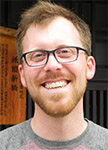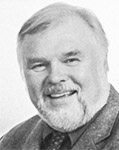Review — A FIVE FINGER FEAST by Tim Suchsland (Kazakhstan)
 A Five Finger Feast: Two Years in Kazakhstan, Lessons from the Peace Corps
A Five Finger Feast: Two Years in Kazakhstan, Lessons from the Peace Corps
by Tim Suchsland (Kazakhstan 2007–09), author and illustrator
Peace Corps Writers, May 2022
395 pages
$19.99 (paperback)
Reviewed by John Chromey (India 1963–65); (PC CD/Eastern Caribbean (1977–79); (Assoc Dir-PC/Washington 1979–1981)
•

Tim Suchsland 2022
Tim Suchsland, a teacher and artist, takes the reader on a very interesting journey into a vast corner of the world that none of us has ever seen, of which we know virtually nothing, which borders on Russia’s infamous Siberia and yet is populated with very interesting people — Kazaks from many tribes, Armenians, Volga Germans and Russians — each with a story of how their people came to be in the village of Valenka, twenty miles from the Russian border and 840 miles (22 hours by road) from the Kazakh capitol, Almaty.
Any of us who served in the Peace Corps in the 1960s, ’70s and ’80s will find this a curious and slightly irritating narrative on how Peace Corps is managed forty years later:
- No stateside training — 3 months in-country training at a Soviet-era ski resort outside of Almaty.
- The language learned by the PCVs is RUSSIAN!!!
- The Peace Corps is providing large numbers of Volunteers assigned as community school English teachers to assist the children of Kazakhstan to navigate the newly independent Kazkhstan’s entry into the global economy in the 21st Century.
- The Volunteers are placed singly in villages and towns an hour or two apart and live with host families in sparse quarters, sharing meals, household chores and many months of dark, cold dreary Central Asian winters, and are expected to share in Kazkh hospitality epitomized by the drinking of substantial amounts of vodka. (Reviewer’s note-— I wonder if the Peace Corps monthly subsistence allowance includes a line item for the purchase of 7 bottles of vodka each month?!)
- Before departing for their assigned village the Trainees are taken to the local “grand market” in Almaty to purchase winter parkas, and fur lined caps with ear flaps.
Our author shares with us from his diary, notes and memories many of the frustrations most Volunteers encounter, just in a most unusual setting, plus the joys of being surveilled by the Kazakh’s mini-KGB police.
Despite the loneliness, the stress of being in a Russian or Kazakh speaking setting 24/7, and the depression infusing long dark cold Siberian winters, in his second year the author finds himself thinking of his village, Valenka as home, and his host family as an important part of his life. Especially unique was learning that his host father had been a Soviet Union soldier in the 1979-1989 Afghan war (the Soviets used mostly Islamic tribal soldiers from the Stans to fight the Afghans). The stories he could tell!!!
All in all a good read that portrays the lives and rhythms of the villagers in a far away country. We find them to be real people, living real lives,educating their children, tending their fields and flocks, and all this under very harsh economic, climatic and unsettled post-Soviet government conditions.
Some interesting quotes from the author:
Describing —
the empty flat, arid Kazakhstan countryside as “This land of vast nothingness is, strangely, one of the most exotic and beautiful places I have encountered in my life,” and
“much of Kazakhstan (despite Genghis Khan, Lenin and the Soviet Politburos) has never been conquered. It remains wild and untamed.”
Our thanks to Tim Suchsland for gifting us with this inside knowledge of a land, peoples and human relations in this faraway place.
And a special thanks for his artistic sketches that illustrate much of his beloved Peace Corps country.
•
 Reviewer John Chromy was a Peace Corps Volunteer in India (1963–65), a PC Country Director in the Eastern Caribbean (1977–79), and Associate Director at Peace Corps/Washington (1979–1981) overseeing Volunteer Recruitment, Selection, Placement, Medical Services and Payroll. He spent several weeks in Afghanistan in 1976 and again in 2004.
Reviewer John Chromy was a Peace Corps Volunteer in India (1963–65), a PC Country Director in the Eastern Caribbean (1977–79), and Associate Director at Peace Corps/Washington (1979–1981) overseeing Volunteer Recruitment, Selection, Placement, Medical Services and Payroll. He spent several weeks in Afghanistan in 1976 and again in 2004.
He is now retired and living in Washington DC after a 40 year career in community-based development on both the domestic and international fronts.
No comments yet.
Add your comment